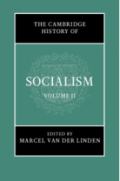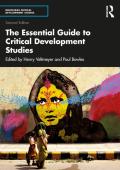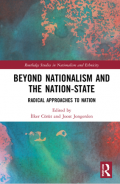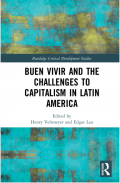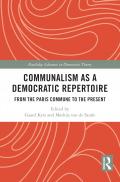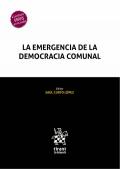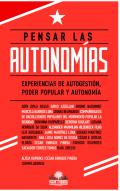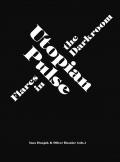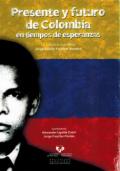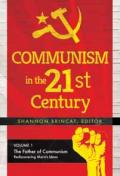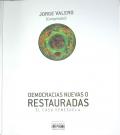Essays
Commune socialism: Self-management, popular power and autonomy in Venezuela
Azzellini, Dario. “Commune socialism: self-management, popular power and autonomy in Venezuela.” Veltmeyer, H., & Ezquerro-Cañete, A. (Eds.). (2023). From Extractivism to Sustainability: Scenarios and Lessons from Latin America (1st ed.). Routledge. https://doi.org/10.4324/9781003301981
Dario Azzellini, Sebastian Brandl und Ingo Matuschek
Nationale Perspektiven auf Nachhaltige Arbeit und Inwertsetzungen von Arbeit in Europa
Azzellini, Dario; Brandl, Sebastian; Matuschek, Ingo. 2023. “Nationale Perspektiven auf Nachhaltige Arbeit und Inwertsetzungen von Arbeit in Europa.” Barth, Thomas; Jaeger-Erben, Melanie; Jochum, Georg; Lorenz, Stephan (Eds.). Nachhaltig Werte schaffen? Arbeit und Technik in der sozial-ökologischen Transformation. Series “Arbeitsgesellschaft im Wandel.“ Weinheim: Beltz / Juventa. 100-116.
Dario Azzellini
Chavismo: Revolutionary Bolivarianism in Venezuela
Dario Azzellini
Workers’ Control and Self-Management
Dario Azzellini
Communes in Venezuela in times of crisis
Venezuela's Oil Wealth and Social Transformation

Summary and Keywords
Dario Azzellini in: Reclaim Democracy. Die Demokratie Stärken und Weiterentwickeln
Selbstverwaltung und Arbeiter*innenkontrolle: Wenn die Demokratie nicht am Werkstor aufhört
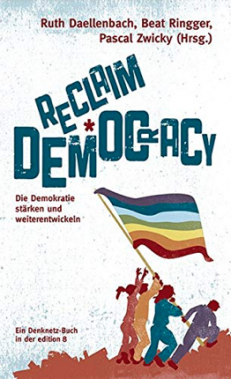
"Ein grundlegendes Merkmal der liberalen Demokratie ist, dass demokratische Entscheidungsfindung aus den meisten Bereichen des Lebens aus- geschlossen bleibt. Liberalismus und Demokratie galten über Jahrhunderte hinweg als unvereinbare Gegensätze. Erst die Beschränkung der Demokratie auf die politische Sphäre machte sie für Liberale akzeptabel und führte zur Entstehung der liberalen Demokratie. Damit ist ein für die meisten Menschen zentraler und prägender Bereich des Lebens, die Arbeit, von der demokratischen Entscheidungsfindung ausgeschlossen.
Dario Azzellini en: La metrópolis creativa: innovación social y espacios de resistencia en el Sur de Europa y América Latina
¡Ocupar, resistir, producir! La crisis actual y las recuperaciones de empresas recuperadas por sus trabajadores en Europa
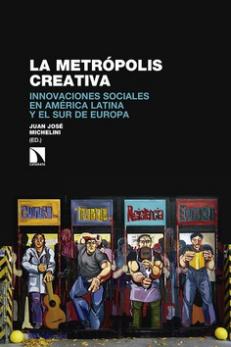
A lo largo de las dos últimas décadas la noción de innovación social ha venido adquiriendo un creciente interés en relación con el desarrollo urbano, interés que parece haberse afirmado en el contexto de la crisis desatada en 2007 y su impacto en términos de pobreza, vulnerabilidad, exclusión social y desigualdad. Refleja, además, la necesidad de poner en marcha dinámicas de cambio social capaces de confrontar, e incluso revertir, las crisis sistémicas periódicas y sus principales consecuencias.
Dario Azzellini in: Council Democracy. Towards a Democratic Socialist Politics
"The Legacy of Workers’ Councils in Contemporary Social Movements"
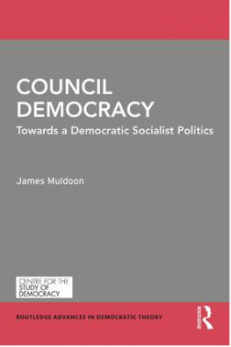
„The return to public assemblies and direct democratic methods in the wave of the global "squares movements" since 2011 has rejuvenated interest in forms of council organisation and action. The European council movements, which developed in the immediate post-First World War era, were the most impressive of a number of attempts to develop workers’ councils throughout the twentieth century. However, in spite of the recent challenges to liberal democracy, the question of council democracy has so far been neglected within democratic theory.
A könyv előszava „They Can’t Represent Us! Reinventing Democracy from Greece to Occupy“
David Harvey: Ők nem képviselhetnek bennünket
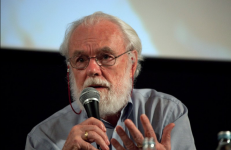
David Harvey 2014-es Ők nem képviselhetnek bennünket c. cikkében amellett érvel, hogy a kapitalizmus nyerteseit rá kell kényszeríteni, hogy megfizessék a környezetre és a társadalomra mért károkat. Világszintű mozgalom-viziójának fontos pillére a tüntetés mint eszköz a civilek kezében.
Eredetileg megjelent előszóként Marina Sitrin és Dario Azzellini: They Can’t Represent Us! Reinventing Democracy from Greece to Occupy. (Ők nem képviselhetnek bennünket! A demokrácia újra-feltalálása Görögországtól az ‘Occupy’ mozgalomig.) London–New York: Verso, 2014.
Dario Azzellini em: Movimentos Sociais e Crises contemporâneas, Vol. 3, Editado por Alves de Lima Filho, Paulo; Tahan Novaes; Henrique; Macedo, Rogério
“Toma de empresas y gestión bajo control obrero en Europa como respuesta a la crisis”
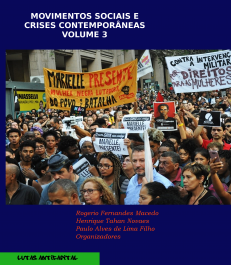
„Poderíamos dizer que este volume trata dos processos de transformação social sob o capital, contra ou a favor dele, das suas transições socioeconômicas no sentido da emancipação da classe trabalhadora quanto do capital, neste quadrante histórico de reversões conexas e complexas. A captura desses três ricos processos se dá em grande estilo, possibilitando ao leitor e alunos uma rica e apaixonante leitura de tão vitais processos.
Dario Azzellini
Comuna o nada. Socialismo comunero en Venezuela
Räte, Arbeiterkontrolle und Selbstverwaltung am Arbeitsplatz
Wir können auch anders
Die Forderung nach Wirtschaftsdemokratie war eine Initiative der Arbeiter- und Gewerkschaftsbewegung in den 1920er Jahren. In der Bundesrepublik wurde dieser Impuls vor allem in die unterschiedlichen Formen der Mitbestimmung in der verarbeitenden Industrie umgesetzt. Daneben gibt es die Praktiken der Genossenschaften, der Kooperativen und der Selbstverwaltung.
Dario Azzellini in: Latin American Utopias: Past and Present, Edited by Juan Pro
“The Commune in Venezuela: A Utopian Prefiguration”
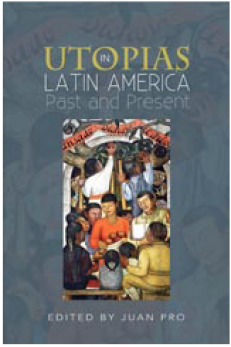
In an age in which fears about the future predominate (in the form of dystopias, ecological catastrophes and terrifying Sci-Fi scenarios), utopia is reappearing as the bearer of hope for the fate of humanity. Latin America has historically been a fertile ground where utopian projects, movements and experiments could take root and thrive, and this constitutes one of the region's major contributions to world history.
Dario Azzellini in: Towards just and sustainable economies The social and solidarity economy North and South, Edited by Peter North and Molly Scott Cato
"21st century socialism? Venezuela’s solidarity, social, popular and communal economy"
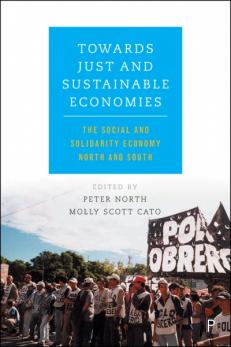
With capitalism in crisis - rising inequality, unsustainable resource depletion and climate change all demanding a new economic model - the Social and Solidarity Economy (SSE) has been suggested as an alternative. What can contribute in terms of generating livelihoods that provide a dignified life, meeting of social needs and building of sustainable futures? What can activists in both the global North and South learn from each other?
Constituent and Constituted Power: Reading Social Transformation in Latin America
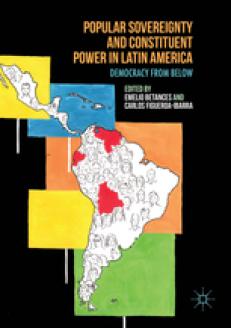
Popular Sovereignty and Constituent Power in Latin America.
Democracy from Below.
Fabbriche recuperate e nuova istituzionalità mutualistica
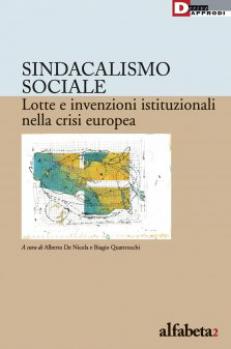
Azzellini, Dario; Castronovo, Alioscia: “Le imprese recuperate in Europa”. In: De Nicola, Alberto; Quattrocchi, Biagio (ed.) (2016): Sindacalismo sociale. Lotte e invenzioni istituzionali nella crisi europea. Roma: DeriveApprodi
In: Moving Beyond Capitalism
The Communal State (Venezuela): Communal Councils and Workplace Democracy

Azzellini, Dario (2016): “The Communal State (Venezuela): Communal Councils and Workplace Democracy”. In: DuRand, Cliff (Editor): Moving Beyond Capitalism. New York: Routledge.
Der Paramilitarismus ist ein strategisches Projekt und ein integraler Bestandteil des Staates
Paramilitarismus in Kolumbien – Der illegale bewaffnete Arm der Eliten und des Kapitals

1. Einführung
Die Paramilitärs in Kolumbien sind der bewaffnete Arm der Eliten, der von allen staatlichen Behörden, auf sämtlichen Verwaltungsebenen und in allen sozialen Schichten unterstützt wird oder damit verwoben ist. Sie wurden mithilfe der kolumbianischen Armee, mehrerer kolumbianischer und US-amerikanischer Geheimdienste und von Söldnern gebildet. Der Paramilitarismus ist ein strategisches Projekt und ein integraler Bestandteil des Staates.
A Preview of the Future. Workers’ Control in the Context of a Global Systemic Crisis
Originating in a bold exhibition at the Secession in Vienna, this book examines moments in social and cultural life where there are glimpses of utopia, where other possibilities of being are imagined and even partially realised. The book moves through Latin American carnivals, forgotten histories, queer utopias, science fiction, workers' control of factories and much more.
Contemporary Crisis and Workers Control: Chapter 2
This chapter was taken from “An Alternative Labour History” | Edited by Dario Azzellini and published by Zed Books
Paramilitarismo colombiano: El brazo armado ilegal de élites y capital
Publicamos este libro en memoria a Jorge Adolfo Freytter Romero (Santa Marta, 1949 / Carretera Barranquilla-Ciénaga, 2001), profesor en la Universidad del Atlántico y luchador social, que fue secuestrado, torturado y asesinado en agosto de 2001 a manos del paramilitarismo conectado con sectores del aparato estatal colombiano.
The Communal System as Venezuela’s Transition to Socialism
"The purpose of this chapter is to explore practices in the Bolivarian Revolution in Venezuela linked to the idea of a transition to socialism through the construction of communal production and consumption cycles controlled by workers and communities. The envisioned transition combines local self-administrat on and workers’ control of the means of production. The present work concentrates mainly on the experiences of local self-administration.
Kapitel jetzt zum download!!
Der globale Aufstand
Nach zwei Dekaden der ökonomischen und sozialen Transformation regt sich in Ex-Jugoslawien Widerstand gegen die verheerenden Auswirkungen neoliberaler Politik, die korrupten Eliten und den Neokolonialismus der Europäischen Union. Spätestens mit der Wirtschaftskrise 2008 und der daraufhin verstärkten Privatisierungs- und Austeritätspolitik wurde die hegemoniale Erzählung freier Märkte immer brüchiger.
Participación y poder popular – Consejos Comunales y Comunas
El libro recoge las intervenciones de 21 destacados intelectuales durante el Seminario titulado "Análisis del proceso democrático venezolano", desarrollado en el marco de las Naciones Unidas, entre los días 3, 4, y 5 de diciembre de 2010; y en el panel denominado "Democracia y Objetivos de Desarrollo del Milenio", que tuvo lugar el 15 de septiembre de 2010 en la Asamblea General de las Naciones Unidas, en Nueva York.


